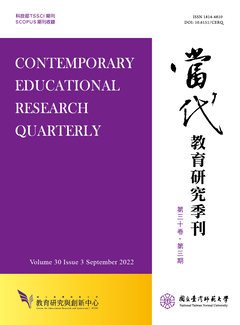

This study aimed at analyzing the teacher's imaginative capability of instructional design and how individual psychology and school environment would predict the capability. This study also analyzed the demographic influences and established a structural model to predict the imaginative capability of instructional design. In order to achieve the research goals, we conducted an exploratory factor analysis to determine the most appropriate structure of imaginative capability in a sample of 380 pre-service teachers (serving the calibration sample), and then conducted a confirmatory factor analysis to confirm the established structure in a sample of 318 in-service teachers (serving the validation sample). The results of this study showed that: (1) the imaginative capability of instructional design consisted of creative imagination and reproductive imagination; (2) both the years of service and the interactive effect between school scale and role duty had different influences on the imaginative capability, individual psychology and school environment; (3) intrinsic motivation had direct effects on both creative imagination and reproductive imagination; (4) self-efficacy, generative cognition, teaching resources, human aggregate and physical component had indirect effects on two types of imagination through the mediator of intrinsic motivation; (5) negative emotion had negative effects on two types of imagination. Both reliability and validity analyses gave the instruments good support which can be used for the future inquiries in different domains. In addition, it is valuable to further explore the structural model established in this study.

This work is licensed under a Creative Commons Attribution-NonCommercial 3.0 Taiwan License.
Center for Educational Research and Innovation, National Tawain Normal University
162, Ho-Ping East Rd, Sec. 1, Taipei, Taiwan | Tel:+886-2-7749-3670 | E-mail: cerecerq@gmail.com
CERI | NTNU | E-mail Alerts | Open Journal System
© 2014 CERI-NTNU
